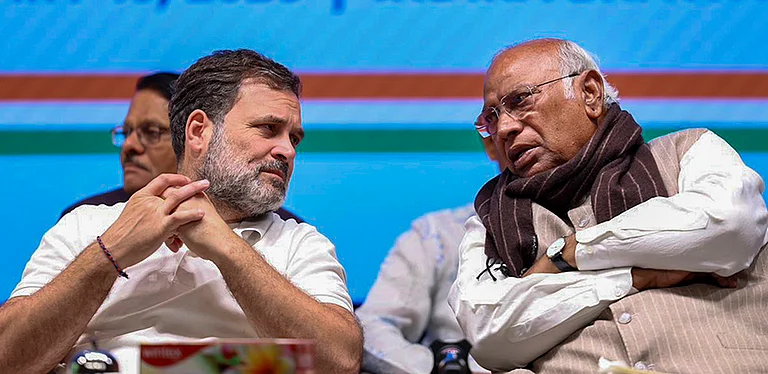The Indian Army has said more areas in Eastern India would be taken out of the purview of Armed Forces (Special Powers) Act —AFSPA— when violence reduces.
More and more areas still covered by AFSPA will be denotified as and when violence parameters come down to an acceptable level in those places, said Lieutenant General RP Kalita, the General Officer Commanding-in-Chief (GOC-in-C) of the Eastern Command of the Indian Army.
Kalita said there has been considerable drop in violence in the last nine months in the insurgency-affected areas of the Northeast leading to denotification of AFSPA from certain areas. He added that peace and development have been ushering in these places.
As GOC-in-C, Kalita is responsible for the Army operations in Eastern India, including the Northeastern states where insurgency still rages in certain areas. AFSPA is still imposed in some areas, which allows security forces to arrest and shoot with legal immunity.
Kalita said, "This has been possible only due to sacrifice that has been made by the Indian Armed forces in ensuring that violence parameters are brought down to an acceptable level."
To a question on whether there are plans to withdraw AFSPA from pockets in the Northeast where it still remains operational, he said that the situation remains dynamic.
"As violence parameters come down, more and more areas will find denotification taking place," said Kalita, adding that this will depend on the local police being able to ensure maintenance of law and order, a call that has to be taken by a state government in consultation with the Centre.
Kalita's comments come after Assam Chief Minister Himanta Biswa Sarma on Monday said that his government is considering withdrawing AFSPA from two more locations in the state.
What's AFSPA, why is it controversial?
AFSPA stands for Armed Forces (Special Powers) Act.
The AFSPA empowers security forces to carry out operations and arrest anyone without any prior warrant. The forces also have immunity from arrest and prosecution if they shoot someone dead.
There have been demands for a long time for the repealing of the law as its "draconian" provisions have been criticised and it has been alleged that there have been human rights violations by the forces operating under the law.
The AFSPA came under attack most recently after the Indian Army killed 14 civilians in Nagaland in December 2021 in what the Union government called a case of "mistaken identity" where the Army allegedly attacked believing civilians to be suspected militants.
The Indian Army and Nagaland Special Investigation Team (SIT) have completed their investigation into the December killings, but it's not yet known if anyone has been prosecuted. Since the killings come under the scope of AFSPA, no prosecution can take place without the sanction of Union government.
The SIT charged 30 Indian Army special forces personnel and said they did not follow standard operating procedures (SOPs) and rules of engagement. The Nagaland Police said the Army opened fire without ensuring positive identification of the vehicle's occupants or challenging them.
What did Himanta Biswa Sarma say on AFSPA?
Sarma on Monday said the government is considering further removal of AFSPA from Assam.
The AFSPA was extended for six months from October 1 with the continuation of the 'Disturbed Area' tag for Tinsukia, Dibrugarh, Charaideo, Sivasagar, Jorhat, Golaghat, Karbi Anglong and Dima Hasao districts along with Lakhipur sub-division of Cachar in the Barak valley. The government had withdrawn the controversial law from West Karbi Anglong district as the situation "considerably improved" there.
Sarma said, "Peace has returned to Assam and Northeast. Today, AFSPA is withdrawn from 65 per cent areas of the state. In the future, we are considering to withdraw it from Lakhipur of Cachar and the entire Karbi Anglong district."
Speaking at a function to offer financial support to surrendered militants for their rehabilitation, Sarma stated that the 'Disturbed Area' tag under the AFSPA has also been removed from different areas of Tripura, Meghalaya, Arunachal Pradesh, Nagaland and Manipur.
"Assam has seen a lot of bloodshed. It is our duty to stop it and develop our state. We are planning to launch a big scheme to offer employment opportunities to the unemployed youths of the state," said Sarma.
(With PTI inputs)


























